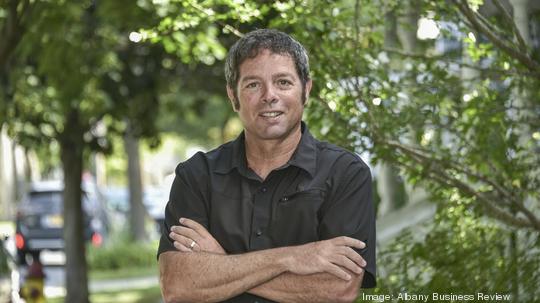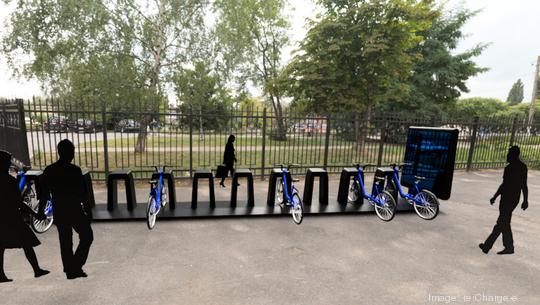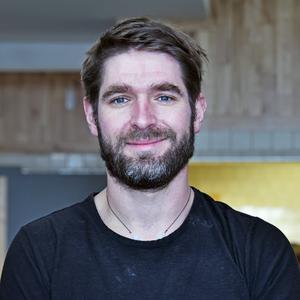
The bicycle share company that Jeff Olson co-founded grew to 500 employees and amassed 30 million bike rides while he was working on it in the early 2010s.
That company, Oregon-based Alta Bicycle Share – which was behind the Citi Bike program in New York City – was acquired by a subsidiary of Lyft in 2014.
With expertise he gained during that time, Olson is working on a new startup he says addresses an expensive problem that all micromobility programs face when it comes to charging electric bikes and scooters.
“As an entrepreneur, you're never done. You just keep going to the next thing, and this is that next thing,” said Olson, co-founder and vice president for the startup re:Charge-e.
Based in the new Innovate 518 space in UAlbany’s ETEC Building, re:Charge-e is developing a wireless charger for bicycle and scooter docking stations.
Right now, companies are having workers either drive around and swap out batteries, or they’re picking up bikes and scooters to charge them at a facility. There are also programs through which individuals are paid to charge a unit at their house or business.
“It's not financially sustainable at all. It costs way too much money to do that. And you're seeing some of the companies really struggle with trying to become profitable,” Olson said. “We can significantly reduce those costs by providing networks of charging stations that shared mobility operators can use.”
The current model also leads to bikes and scooters being left all over cities because they lose their charge.
While some of the other wireless chargers in development are made by companies for their specific products, he says the re:Charge-e product can be used universally by charging different types of batteries at different voltages. That means people who own their own electric bikes or scooters or wheelchairs could also charge them in a public space.
During his work on Alta Bicycle Share, Olson was approached by Julien Bouget, a French-American wind energy physicist, with the idea for the charging technology. Bouget is now CEO of re:Charge-e.
They decided to go into business together, and now they’re getting ready to tackle a sector of the fast-growing mobility market. There was $2.9 billion in new micromobility investment in 2021 alone, according to the McKinsey Center for Future Mobility.
The plan is to complete two pilot projects – the startup already has letters of intent. Then, the goal is to make an agreement with at least one of the large mobility operators before expanding more widely, Olson said.
Besides developing the technology, he pointed out the importance of proper deployment – knowledge he says he gained during his time at Alta.
“We figured out how to deploy it, operate it and manage it in a way that was very successful for ourselves, for our partners, for the cities, for the corporate sponsors," Olson said.
The charger would be installed at each of a city’s individual docking stations. To work, there will be a concealed device in each vehicle and in each dock of the storage rack. The electricity will transmit from the rack device to the bike device without needing to make physical contact. Olson says the amount of power it takes to fully charge one car could fully charge 200 bikes or scooters wirelessly.

The startup developed the prototype with tools at the Tech Valley Center of Gravity in Troy, funded by a $250,000 grant from the New York State Energy Research and Development Authority. The startup was also one of three companies that just won $50,000 through a new pre-seed investment program at Innovate 518.
Down the road, Olson said the company will explore installing a version that can wirelessly charge cellphones and other electronics.
Just as he did during his time at Alta, Olson – along with Bouget – plans to work entirely from the Albany region.
“We are both big advocates for our home region,” Olson said. “Certainly, there are going to be regions that are asking us to move and relocate as this idea becomes more popular. But we want to see this happen here.”



